 Web Front-end
Web Front-end JS Tutorial
JS Tutorial How to use encapsulation to achieve floor lighting effect (code example)
How to use encapsulation to achieve floor lighting effect (code example)This chapter introduces how to use encapsulation to achieve the floor lighting effect (code example). It has certain reference value. Friends in need can refer to it. I hope it will be helpful to you.
Functional requirements:
1. When the mouse scrolls to the page content floor, the side navigation floor appears; otherwise it is hidden.
2. When the mouse scrolls to the corresponding floor, the side navigation floor is highlighted.
3. When you click on the side navigation, the page scrolls to the corresponding floor.
As shown below:

Technical points:
1. Proficient in using jquery and js,
2. Animation; scrollTop(); offset(). top
3. Anchor application
Implementation process:
1. Encapsulate a For the plug-in that scrolls and lights up the floor, call this method in the main page program

2. Next, we go deep into the plug-in to implement the specific functions of the plug-in.
scrollsoy (options) { function }, here we pass a parameter to the plug-in, as shown in the function above, an object {target: "div.affix"} is passed in, that is, we Class for additional navigation on the side. The advantage of this is to improve the reusability of the code. As long as such a function is needed in the future, we only need to modify the value of the target. This is a plug-in.
-
Define a rolling event in the plug-in to light up the floor switch.
i), Get the scrolling distance between the window and the top of the scroll bar, var top = $(window).scrollTop();
ii), Judgment:
If now If you scroll above the 1st floor (top
If you scroll below the 3rd floor (top>3F distance), create a side navigation bar The fade-out effect;
else, now between the 1st floor and the 3rd floor, make the fade-in effect of the additional navigation bar on the side; At this time, light up the currently scrolling floor switch.
Traverse each floor of the side navigation bar and check which floor's offset of the window scroll offset exceeds that of the page.
How to get the offset of the page floor? As shown in the figure above, the href attribute of the a tag on the side of the navigation bar is bound to the page floor id. Get its anchor point on the page through the href attribute of the a tag, and then use offset().top to get the offset of the page floor
Judgment——top>The offset of the page floor indicates that the window has scrolled to a specific floor. Highlight the floor of the additional navigation bar on the side -
Define a click event in the plug-in, click the additional navigation bar on the side, and the page scrolls to the corresponding floor
First, prevent the default behavior of hyperlinks
According to the href attribute of a, find the offset of its corresponding floor from the top of the page
Use animation effects to let the page body scroll to the specified high. Note that there are compatibility issues with the highlighted part here$('body').animate({scrollTop: offset}, 500)
Summary:
I believe that everyone will have a better understanding of encapsulation after reading this example. In the future, when implementing functions, we can think about problems from this perspective to improve the reusability of code. However, if you can try it yourself and taste the actual difficulties encountered, you can discover your own problems and continuously improve your abilities.
The above is the detailed content of How to use encapsulation to achieve floor lighting effect (code example). For more information, please follow other related articles on the PHP Chinese website!
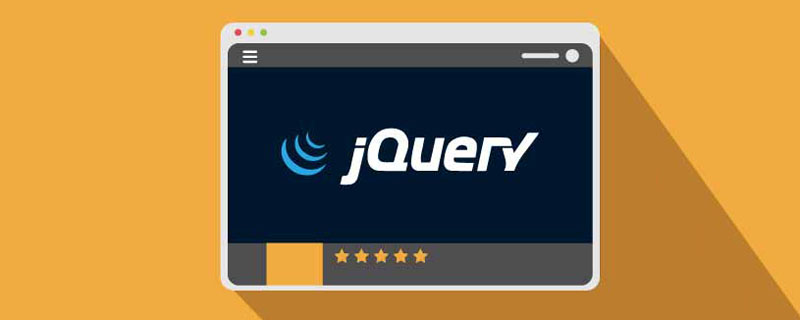 jquery实现多少秒后隐藏图片Apr 20, 2022 pm 05:33 PM
jquery实现多少秒后隐藏图片Apr 20, 2022 pm 05:33 PM实现方法:1、用“$("img").delay(毫秒数).fadeOut()”语句,delay()设置延迟秒数;2、用“setTimeout(function(){ $("img").hide(); },毫秒值);”语句,通过定时器来延迟。
 jquery怎么修改min-height样式Apr 20, 2022 pm 12:19 PM
jquery怎么修改min-height样式Apr 20, 2022 pm 12:19 PM修改方法:1、用css()设置新样式,语法“$(元素).css("min-height","新值")”;2、用attr(),通过设置style属性来添加新样式,语法“$(元素).attr("style","min-height:新值")”。
 axios与jquery的区别是什么Apr 20, 2022 pm 06:18 PM
axios与jquery的区别是什么Apr 20, 2022 pm 06:18 PM区别:1、axios是一个异步请求框架,用于封装底层的XMLHttpRequest,而jquery是一个JavaScript库,只是顺便封装了dom操作;2、axios是基于承诺对象的,可以用承诺对象中的方法,而jquery不基于承诺对象。
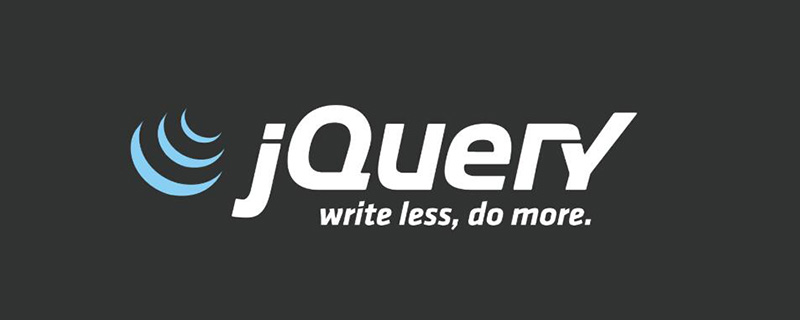 jquery怎么在body中增加元素Apr 22, 2022 am 11:13 AM
jquery怎么在body中增加元素Apr 22, 2022 am 11:13 AM增加元素的方法:1、用append(),语法“$("body").append(新元素)”,可向body内部的末尾处增加元素;2、用prepend(),语法“$("body").prepend(新元素)”,可向body内部的开始处增加元素。
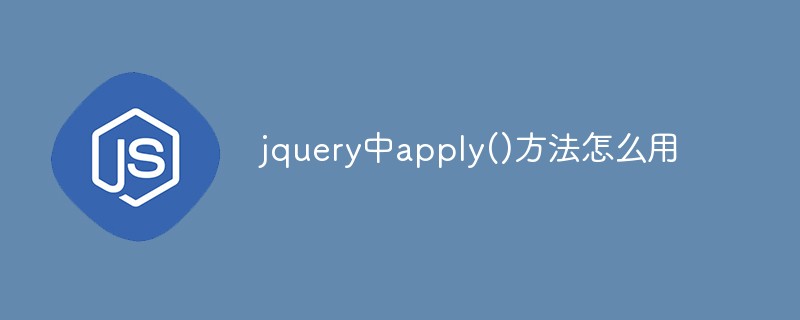 jquery中apply()方法怎么用Apr 24, 2022 pm 05:35 PM
jquery中apply()方法怎么用Apr 24, 2022 pm 05:35 PM在jquery中,apply()方法用于改变this指向,使用另一个对象替换当前对象,是应用某一对象的一个方法,语法为“apply(thisobj,[argarray])”;参数argarray表示的是以数组的形式进行传递。
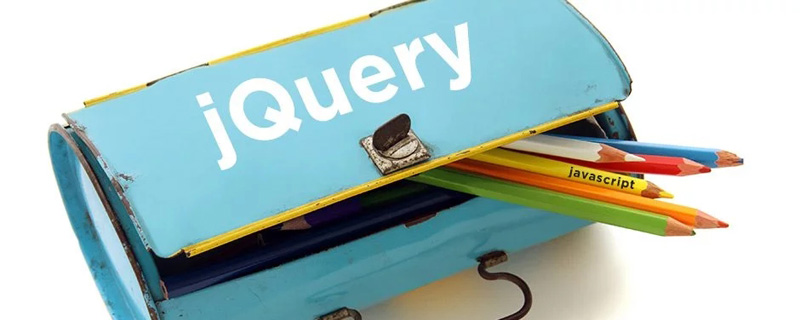 jquery怎么删除div内所有子元素Apr 21, 2022 pm 07:08 PM
jquery怎么删除div内所有子元素Apr 21, 2022 pm 07:08 PM删除方法:1、用empty(),语法“$("div").empty();”,可删除所有子节点和内容;2、用children()和remove(),语法“$("div").children().remove();”,只删除子元素,不删除内容。
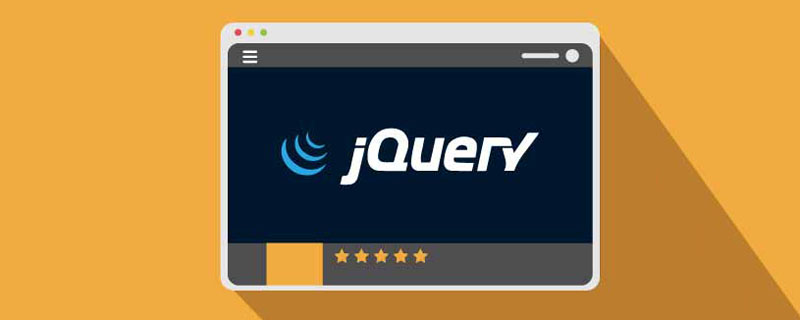 jquery on()有几个参数Apr 21, 2022 am 11:29 AM
jquery on()有几个参数Apr 21, 2022 am 11:29 AMon()方法有4个参数:1、第一个参数不可省略,规定要从被选元素添加的一个或多个事件或命名空间;2、第二个参数可省略,规定元素的事件处理程序;3、第三个参数可省略,规定传递到函数的额外数据;4、第四个参数可省略,规定当事件发生时运行的函数。
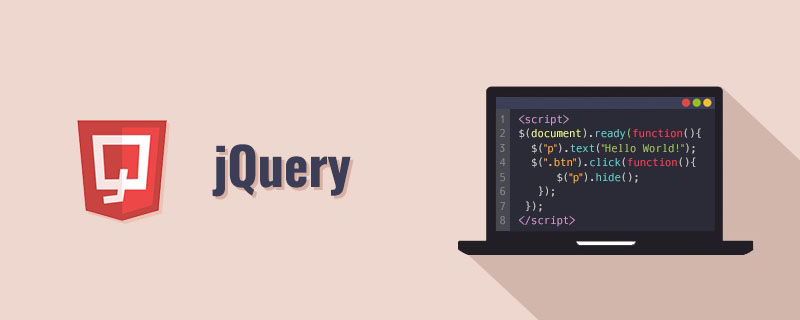 jquery怎么去掉只读属性Apr 20, 2022 pm 07:55 PM
jquery怎么去掉只读属性Apr 20, 2022 pm 07:55 PM去掉方法:1、用“$(selector).removeAttr("readonly")”语句删除readonly属性;2、用“$(selector).attr("readonly",false)”将readonly属性的值设置为false。


Hot AI Tools

Undresser.AI Undress
AI-powered app for creating realistic nude photos

AI Clothes Remover
Online AI tool for removing clothes from photos.

Undress AI Tool
Undress images for free

Clothoff.io
AI clothes remover

AI Hentai Generator
Generate AI Hentai for free.

Hot Article

Hot Tools

mPDF
mPDF is a PHP library that can generate PDF files from UTF-8 encoded HTML. The original author, Ian Back, wrote mPDF to output PDF files "on the fly" from his website and handle different languages. It is slower than original scripts like HTML2FPDF and produces larger files when using Unicode fonts, but supports CSS styles etc. and has a lot of enhancements. Supports almost all languages, including RTL (Arabic and Hebrew) and CJK (Chinese, Japanese and Korean). Supports nested block-level elements (such as P, DIV),

MantisBT
Mantis is an easy-to-deploy web-based defect tracking tool designed to aid in product defect tracking. It requires PHP, MySQL and a web server. Check out our demo and hosting services.

SAP NetWeaver Server Adapter for Eclipse
Integrate Eclipse with SAP NetWeaver application server.

Atom editor mac version download
The most popular open source editor

MinGW - Minimalist GNU for Windows
This project is in the process of being migrated to osdn.net/projects/mingw, you can continue to follow us there. MinGW: A native Windows port of the GNU Compiler Collection (GCC), freely distributable import libraries and header files for building native Windows applications; includes extensions to the MSVC runtime to support C99 functionality. All MinGW software can run on 64-bit Windows platforms.





